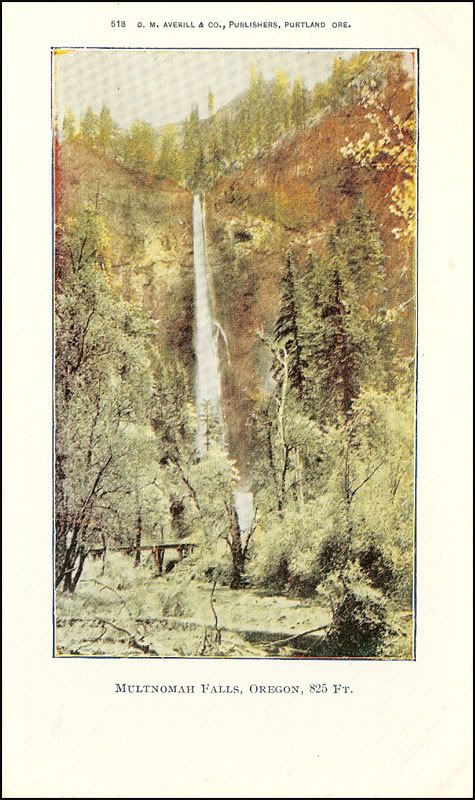What would happen if two of my selected writings collided?
I thought I might as well see. One of the pieces (Of the Greataway) is from a story I had been working on roughly called The Weavemothers. The other (On the Thickness of Skin) was an entry in my now defunct feature called Café Discovery that once appeared on Sundays at Docudharma.
In the beginning was the Void…and Uncertainty.
So there either was or was not. Thus the Void was not void. There was a bit.
The first bit, together with Uncertainty, generated more bits. SpaceTime erupted, a boil on the butt of perfect emptiness. The Rainbow computer that is our universe existed. Or exists. Or will exist. Or will have existed.
Tense often doesn’t matter that much in SpaceTime.
Thus were the bones of the the universe laid down, the warp threads of the Tapestry of Life. This was the Way it was done, in as much as the Way can be described…which is not at all, of course.
The Greataway leapt into existence.
The WeaveMothers will have appeared before. Or after. More mash-ups may ensue.
Having read the several volumes of Michael Greatrex Coney’s Song of Earth could also prove helpful, though it could also just point out the faultiness of my memory. Or you could just relax and accept the possibility of the Celestial Steam Locomotive passing through the Greataway.
The beginnings of the Song concern the adventure of the Triad: the Wild Human Manuel, also known as the Artist, the cuidador Zozula, also known as the Oldster or the Guardian, and a neotenite, one of the Dream People, known only as the Girl. And it included the stories they told as well.
Once upon a Wherewhen, perhaps in a BigWish of one or more of the Dream People…but perhaps not…the Celestial Steam Locomotive was created. The mechanical metaphor that it is, was and will have been allows transportation between and travel along the various happentracks of the Greataway.
“You make the Locomotive sound fusty and ordinary and dull, no better than a mechanical llama.” The wheels had no rails beneath them. They spun above a bottomless void that dropped sheer from the platform edge. “The Locomotive is the most beautiful thing in the world, and at first it was the best thing Mankind have ever done. Everything about it was perfect and had its purpose, and the decorations add to the beauty of its shape, instead of hiding it.” Her fingers traced the brass beading around one curved splasher. The warm metal was vibrant and alive. “This Locomotive is the distillation of everyone’s idea of what a machine should look like. It’s composed of a million smallwishes, a million dreams of beauty.” Above her the huge boiler throbbed, tapering from the square-topped firebox to the black cylindrical smokebox. The boiler like the cab and tender, was a warm green lined out in gold and black. Above the buffers sat a large brass bell.
“And the worst thing is,” said the Girl, “that this lovely machine is used to provide pleasure for idiots.”
–Michael Greatrex Coney, The Celestial Steam Locomotive, pages 138-139

The Storyteller took a deep breath and cast back for another memory, another story to tell. The Listener was patient, but did require the occasional feeding. The Storyteller chuckled at the observation. The Engineer glanced backward and nodded. And the Train switched to another happentrack.
The Storyteller began to sing. The Listener leaned forward. The passenger turned over, but otherwise remained sleeping.
One day Sun found a new canyon.
It hid for miles and ran far away,
then it went under a mountain. Now Sun
goes over but knows it is there. And that
is why sun shines–it is always looking.
Be like the sun.
–William Stafford
Pine was at it again, hectoring all of creation. Canyon rolled its eyes as Sun passed overhead. Canyon preferred peace.
Pine laughed at Birch. He pointed at Rainbow Eucalyptus and said, “Are you trying to be her? No bark at all? So disgusting. No morals. She is a danger to us all.”
Birch cringed. “But she is pretty,” Birch said.
Birch hated it when Pine got this way. Pine was devoid of feelings for others, and so became extremely judgmental and disdainful. Birch wanted to say something about it, but didn’t want to seem judgmental himself. Birch often wished Pine would keep his opinions to himself. Birch cringed again just thinking about it.
Pine continued, “I’m telling you, Birch. You will rue the day when Fire comes and you don’t have the bark to protect yourself. You’ll be sorry…and a danger to us all.” And with that, Pine fell silent.
But Birch remembered a time, a time when he felt the pain, so weak he almost missed it.
He had reached out his mind and beheld strange creatures, so unfocussed, so unaware…totally unaware of him. So incredibly fragile. No bark at all. But creatures nonetheless.
Birch remembered when he told Willow about what he had sensed, and she had produced an antidote for the pain. It wasn’t that long ago.
Δ Δ Δ Δ Δ Δ
empathy
The word first appeared in 1903, a translation of the German Einfühlung (from ein “in” + Fühlung “feeling”), which was coined in 1858 by the German philosopher and logician Rudolf Hermann Lotze (1817-81).Note: Lotze studied the sciences under Weber, Volkmann and Fechner (Weber is credited with inventing experimental psychology) and aesthetics and art under Weisse. He considered himself an idealist in the style of Hegel and Fichte. But he was the bridge to a new way of thinking.
[He wrote] …a series of works which aimed at establishing in the study of the physical and mental phenomena of the human organism in its normal and diseased states the same general principles which had been adopted in the investigation of inorganic phenomena.
But I digress.
The word was developed from the Greek empatheia “passion,” from en- “in” + pathos “feeling” (see pathos). It was originally a term from the theory of art appreciation. Empathize (v.) was coined 1924; empathic (adj.) is from 1909.
From Philip K. Dick’s Do Androids Dream of Electric Sheep?, wherein one of the methods of distinguishing humans from androids involves a test based on involuntary empathic reactions, through the half-Betazoid Deanna Troi, to the television series Charmed and Angel, empaths have been grist for the fictional wheel.
Empathy is not sympathy. Sympathy is a way of reacting to someone who is suffering. Empathy is feeling that suffering as if it were you own. In it’s simplest form, it is flinching when someone slams his finger in a door. At it’s most sophisticated, it is their pain in your heart.
–unknown
Some see it as another form of spiritualism…of the fortune teller variety. Some call it New Age, though it is as old as the wind. I rather see it as the basis for compassion. I see the command that I thicken my skin as a demand that I abandon my compassion. I will not do that.
When they come and ask me why I didn’t protect you, I don’t want to have to say that my skin was so thick I couldn’t feel your pain.
Nakai:
Shaman’s Call





3 comments
Author
…whether there will be anyone who reads what I have written.
Please know, if you are there, that there is always a point. I don’t do these just to here myself speak, but search rather for a conversation about that point.
Mostly I fail.
I’m almost always learning something. It’s just that I rarely feel like I have anything valuable enough to add to the conversation.
Mostly I’m a lurker. But that doesn’t mean I’m not getting anything from the work. I try to tip and rec to let people know I got something out of it. Because I don’t comment much I guess that makes a pretty selfish reader. I get a lot more than I give back.
Anyhow, this is the corner of the blog world I’m most comfortable in and I’m glad you are here.
Thanks for another great chapter.
when you look back on things you’ll be happy I never let my bark off the leash, even though he peed my pants and leaf skied me to the destruction of my knees and I had to crawl to my doorstep screaming in pain (true that).
It takes a lot to pierce thick skin and birches are not just papery fluff. Like Willows they bend but don’t break. I spit in the wind and fire and dare them to do their worst.
It excites me.